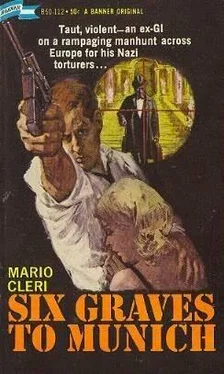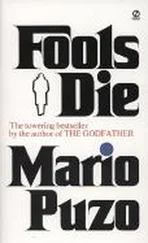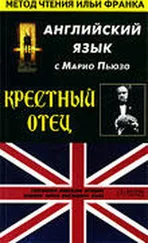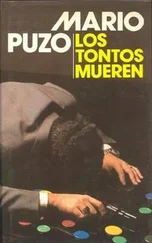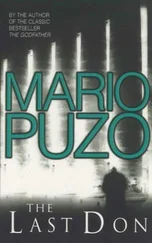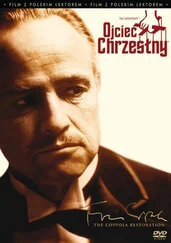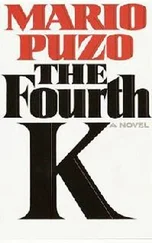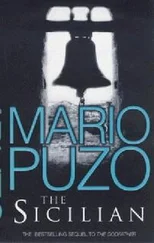How could he explain to anyone that as a staff officer, a nobleman, a German, he had come to recognize the degradation of his country, its dishonor. And like a man who is married to a drunkard and who decides to become a drunkard himself to show his love for her, so he, too, had become a torturer and a murderer to remain a German. But had it really been that simple?
In those years since the war he had lived a truly good life, and it had been natural to him. As a judge he had been humane, never cruel. He had left his past behind him. The records of the Munich Palace of Justice had been carefully destroyed; and up until a few weeks ago he had felt little remorse for his wartime cruelties.
Then he had learned of Pfann and Moltke being killed, and the Freisling brothers too. A week ago the American Intelligence officer Arthur Bailey had come to his home and told him about Michael Rogan. Rogan had murdered the men who had been von Osteen’s underlings in the Munich Palace of Justice when he had been a judge without the sanction of law. Von Osteen remembered Michael Rogan. They had not killed him after all.
Arthur Bailey had reassured him. Rogan would never accomplish his final murder, American Intelligence would see to that. They would also keep von Osteen’s war atrocities a secret. Von Osteen knew what this meant. If he ever came to political power in West Germany he would be subject to blackmail by American Intelligence.
Lying on the sofa he reached out to touch his wife, not opening his eyes. It was only when he learned that Rogan was alive that Von Osteen began to dream about him. He had nightmares of Rogan leaning over him, the back of his skull bleeding, the blood dripping onto von Osteen’s face. He had nightmares of a phonograph record blaring out the screams of Rogan’s young wife.
What was the truth? Why had he tortured Rogan and then killed him? Why had he recorded the screams of that pretty girl dying in childbirth? And why had he finally betrayed Rogan, led him on to hope for life, led him on to believe his wife was still alive?
He remembered the first day of the interrogation, the look on Rogan’s face. It was an innocent, good face, and it had irritated him. It was also the face of a young man to whom nothing terrible had yet happened.
On the same day von Osteen had gone to visit the prisoner ’s wife and found that she had been taken to the medical room, in childbirth. Walking toward the room, he had heard the young girl’s screams of pain, and when the doctor had told him the girl was dying von Osteen had decided to have the screams recorded to frighten Rogan into talking.
What a clever man he had been, von Osteen thought. He was clever in everything. Clever in evilness; and after the war, living with his ruined face, clever in goodness. And being clever, he now knew why he had destroyed Rogan so completely.
He had done so, von Osteen realized, because evil and good must always try to destroy each other; and it must follow that in the world of war and murder, evil must triumph over good. And so he had destroyed Rogan, slyly led him on to trust and hope. And at that final moment when Rogan had begged for mercy with his eyes von Osteen had laughed, his laughter drowned by the roar of the bullet exploding into Rogan’s skull. He had laughed at that moment because the sight of Rogan, with his hat tilted forward over his brow, had been genuinely comical; and death itself, in those terrible days of 1945, was merely a burlesque.
“It’s time.” His wife was touching his closed eyes. Von Osteen rose from the sofa and his wife helped him into his jacket. Then she walked with him to the limousine. “Be merciful,” she said.
It caught him unawares. He looked at her, his eyes dazed with incomprehension. She saw this and said, “On that poor wretch you will have to sentence this afternoon.”
Suddenly von Osteen had the overwhelming urge to confess his crimes to his wife. But the car was wheeling slowly away from the house on its way back to the Munich Palace of Justice. Already under sentence of death, but hoping for a reprieve, von Osteen could not bring himself to confess.

Arthur Bailey paced the office of the CIA communications center in the U.S. Army headquarters outside Munich. Early that morning he had sent a coded radiogram to the Pentagon explaining the entire situation regarding von Osteen and Rogan. He had recommended that no action be taken by his organization. Now he was waiting impatiently for the answer.
It was nearly midday before a reply was received. The clerk took it into the top secret decoding room, and half an hour later the message was placed in Bailey’s hands. It stunned him. It instructed him to have von Osteen guarded and to inform the German police of Rogan’s intentions. This course of action would be so disastrous, Bailey thought, that he decided to use the radiophone to the Pentagon. The code signature on the reply was that of a former German teammate of Bailey’s, Fred Nelson. They couldn’t speak too freely over the radiophone, but maybe Bailey could get his message across to Nelson. And he sure as hell had to hurry. Rogan might be right behind Judge von Osteen this minute.
It took him ten minutes to get a connection. After identifying himself he said cautiously, “Do you people know what the hell you’re doing with those instructions you sent me? You could blow the whole political setup sky-high.”
Nelson’s voice was cool and noncommittal. “That decision came from the top in Intelligence. It’s been cleared by the State people. So just go ahead and follow orders.”
Bailey said disgustedly, “They’re all crazy.” His voice sounded so worried that Nelson took pity on him.
“That one aspect you’re worried about,” Nelson said guardedly, “that’s being taken care of.”
Nelson was referring to the letters Rogan had sent to his friends in the States. “Yes, I understand,” Bailey said. “What was done about that?”
“We’ve kept a file on him since your first report. We know everybody he might correspond with, and we’ve placed a postal intercept on the post of every person he knows.”
Bailey was genuinely surprised. “Can you get away with that in the States? I didn’t think of that at all.”
“National security. We can do anything.” Nelson sounded sardonic. “Will this guy let himself be taken alive?”
“No.”
“He’d better not be,” Nelson said, and broke the connection.
Bailey cursed himself for having called instead of just following instructions. He knew what Nelson’s last remark meant. He had to make sure that Rogan was not captured alive, or not allowed to remain alive after he was captured. They didn’t want him talking about von Osteen.
Bailey got into the waiting staff car and told the driver to take him to the Palace of Justice in Munich. He didn’t think Rogan had had enough time to make his move, but he wanted to make sure. Then he would pick up Vrostk, and they would both go to the pension and finish Rogan off.

In the emergency clinic of the Munich Palace of Justice, Rogan prepared for his final meeting with Klaus von Osteen. He combed his hair and straightened his clothing; he wanted to look as presentable as possible so as not to stand out in the crowd. He patted his jacket pocket on the right side to make sure the Walther pistol was still there, though he could feel its weight.
Rosalie took a bottle of colorless liquid from her mobile tray and poured some on a thick square of gauze. She put the gauze in Rogan’s left-hand pocket. “If you start to feel faint, hold it to your mouth and breathe in,” she said.
Читать дальше
